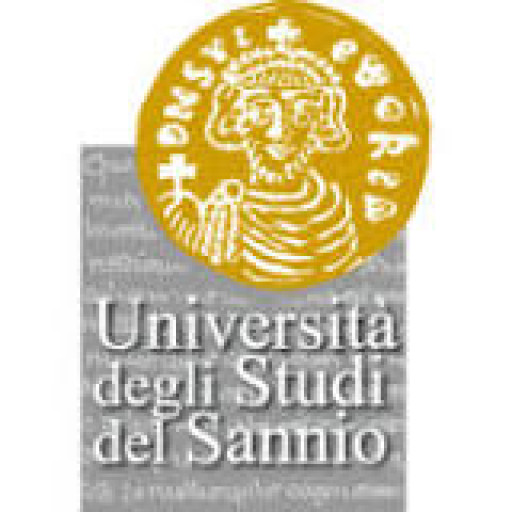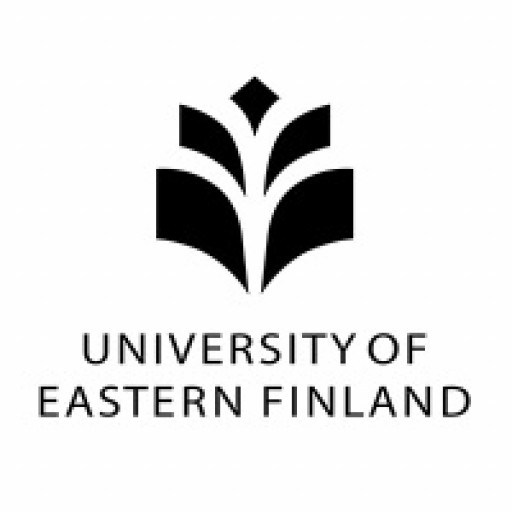Photos of university / #unistrathclyde
Field of Study: Counselling
Degree Level: MSc
Duration: 12 months (full-time)
Start Date: September 2024
Application Deadline: August 2024
Location: University of Strathclyde, Glasgow, UK
The MSc Counselling at the University of Strathclyde offers an in-depth exploration into the theories, skills, and ethical frameworks essential for effective counselling practice. This program is designed for individuals who are passionate about supporting others through their emotional and psychological challenges, whether they are aiming to work in mental health services, community settings, or private practice. Over the course of this one-year programme, students will develop a comprehensive understanding of various counselling models, including person-centred, cognitive-behavioural, psychodynamic, and integrative approaches.
The curriculum includes both theoretical coursework and practical training components, ensuring students gain hands-on experience through supervised placements and simulated client scenarios. Emphasis is placed on developing core skills such as active listening, empathetic engagement, ethical decision-making, and cultural competence. Through reflective practice and continuous supervision, students learn to navigate complex client situations while maintaining professional boundaries. The programme also covers key topics such as mental health issues, addiction, trauma, and diversity, preparing graduates to work ethically and effectively across diverse populations.
The MSc Counselling is accredited by relevant professional bodies, supporting graduates’ progression into accredited counselling roles or further academic research. The programme is suitable for individuals from varied backgrounds, including psychology, social work, healthcare, or related fields, who wish to expand their expertise into counselling practice. Graduates will be equipped with the competencies needed to support individuals or groups experiencing psychological and emotional difficulties, contributing positively to mental health and well-being within the community. On completion, students will be well-prepared for employment in NHS services, voluntary agencies, private therapeutic practices, or to pursue further professional development.
The University of Strathclyde’s excellent facilities, experienced faculty, and strong links with health and social care sectors ensure a rich learning environment. The programme fosters a collaborative community of learners, encouraging critical thinking, ethical awareness, and ongoing professional growth. If you are committed to making a meaningful difference in people’s lives through counselling, this MSc programme provides an ideal foundation to develop your skills and advance your career in this rewarding field.
The Counselling and Counselling Skills programmes at the University of Strathclyde are designed to provide students with comprehensive theoretical knowledge and practical skills essential for professional practice in counselling and related fields. The programmes focus on developing a deep understanding of human psychology, emotional wellbeing, and the ethical considerations necessary for effective counselling. Students will explore a range of counselling theories and approaches, including cognitive-behavioural, humanistic, psychodynamic, and integrative methods, enabling them to tailor their practice to diverse client needs.
Throughout the course, students engage in supervised practice, where they develop their active listening, communication, and interpersonal skills. Emphasis is placed on building a strong therapeutic alliance, assessing clients' needs, and fostering a supportive environment for change and personal growth. The programmes integrate academic learning with experiential training, ensuring students gain real-world skills applicable across various settings such as mental health services, educational institutions, community organisations, and private practice.
The curriculum covers key topics such as mental health awareness, ethical and legal issues in counselling, diversity and cultural competence, and crisis intervention. Additionally, students learn to use various counselling interventions and techniques, evaluate their effectiveness, and reflect critically on their practice to foster continual professional development. This balanced approach equips graduates with the confidence and competence to work responsibly and ethically as counselling practitioners.
Students also have opportunities to develop specialised skills through optional modules, allowing them to focus on areas like addictions, youth work, or environmental counselling. The programmes culminate in a supervised placement, where students gain hands-on experience, apply theoretical insights in practical scenarios, and develop professional networks. Upon successful completion, graduates are well-prepared to pursue further accreditation or career opportunities in counselling, social work, education, and allied health fields.
The University of Strathclyde's Counselling programmes uphold high standards of academic and professional excellence, ensuring that graduates are equipped with the knowledge, skills, and ethical framework necessary for effective practice in diverse settings. With a strong emphasis on reflection, supervision, and ongoing learning, the programmes aim to foster compassionate, competent, and capable counselling professionals committed to making a positive impact in individuals' lives.
The University of Strathclyde offers programmes in Counselling and Counselling Skills designed to develop students' theoretical knowledge and practical skills required to support individuals facing emotional and psychological challenges. To successfully complete the Counselling and Counselling Skills programme, students are typically required to undertake a combination of taught modules, practical assessments, and supervised practice placements. Core modules usually include Topics such as Introduction to Counselling, Ethical and Professional Issues, Communication and Listening Skills, Crisis and Risk Management, and Developing Therapeutic Skills. Additionally, students may engage in reflective practice, ensuring continuous personal development throughout their studies.
The programme emphasizes experiential learning, with students participating in simulated counselling sessions, peer group work, and live client work under supervision. To meet the academic requirements, students are expected to achieve a set number of credits, usually totaling around 120-240 credits depending on the level and length of the programme. They are also expected to complete practical hours, demonstrating their competence in counselling skills. Ethical standards and confidentiality are integral components, with students trained in maintaining professional boundaries and adhering to codes of conduct established by relevant accrediting bodies.
Assessment methods typically include written assignments, reflective journals, practical examinations, and observed counselling sessions. The programme maintains a strong focus on personal development, ensuring that students are equipped with self-awareness and emotional resilience. Furthermore, students are often required to undertake a specified period of supervised practice, which is crucial for developing real-world counselling capabilities. Successful completion of the programme usually qualifies graduates to pursue further professional accreditation or entry into related fields such as social work, mental health services, or academic research. Throughout their studies, students benefit from experienced faculty members, practical workshops, and employment-focused learning opportunities to prepare them thoroughly for careers in counselling and related disciplines.
Funding for the MSc in Counselling and Counselling Skills at the University of Strathclyde is primarily available through multiple sources of financial support. The program offers various scholarship opportunities, including university-funded scholarships, external bursaries, and fee waivers, aimed at both domestic and international students. Students are encouraged to explore scholarships specific to health, counselling, or social sciences disciplines, which may be offered by governmental agencies, charitable foundations, or professional bodies. The university also provides information on student loans, including both UK student finance options and international loan programs where applicable. Additionally, some students may be eligible for part-time work opportunities on or near campus to support their studies financially. The program's tuition fees are published annually on the university’s official website and are subject to change; prospective students should consult the website for the most current figures. International students should also consider visa-related expenses and possible costs for health insurance, which may be required depending on their country of origin. The university offers financial guidance and support services to assist students in planning their finances and applying for relevant funding. For those enrolled in the program, there are also options for installment payment plans to spread tuition costs over the academic year. It is advisable for prospective students to begin their financial planning early and to utilize the resources available through the university’s financial aid office to identify all potential sources of funding, ensure timely application submissions, and maximize their chances of receiving financial support.
The MSc in Counselling and Counselling Skills at the University of Strathclyde is designed to provide students with comprehensive training in counselling theories, techniques, and practical skills. The programme aims to equip students with a solid foundation in understanding psychological, emotional, and behavioural issues, preparing them for a range of professional roles within mental health services, educational settings, and community organizations. Throughout the course, students engage in both theoretical learning and practical application, including supervised placements where they can develop their counselling skills in real-world environments.
The curriculum covers core areas such as person-centred counselling, cognitive-behavioural approaches, and ethical practice. Students are also encouraged to reflect critically on their own learning and develop a personal counselling style. The programme typically includes modules on developmental psychology, mental health issues, and counselling research methods, ensuring graduates are well-versed in evidence-based practices.
In addition to taught modules, students participate in experiential learning, which involves role-playing, peer counselling, and receiving feedback from instructors and peers. Supervised practice placements are integral to the course, providing valuable real-world experience and opportunities for professional development. These placements are often conducted in partnership with local organisations, enabling students to apply their skills in diverse settings.
The programme is suitable for those aiming to work as professional counsellors or supporting roles within mental health services, schools, or community agencies. It also offers a foundation for further study or specialist training in areas such as psychotherapeutic approaches, substance misuse, or mental health nursing. The course fosters critical thinking, ethical awareness, and cultural competency, preparing graduates to work effectively with diverse client groups.
The University of Strathclyde is known for its strong emphasis on practical skills and employability, and this programme reflects that by integrating practice-based assessments with academic learning. The programme is delivered by experienced practitioners and academic staff, many of whom are actively involved in research and consultancy in mental health and counselling fields. Students benefit from access to modern facilities, including counselling labs and dedicated support services.
Graduates of the MSc in Counselling and Counselling Skills are equipped to pursue careers as accredited counsellors, mental health practitioners, or progress onto doctoral studies. The programme also emphasizes ongoing professional development, ethical practice, and adherence to Scottish and UK counselling standards. With a focus on reflective practice and continuous learning, the course supports students throughout their professional journeys in counselling and related disciplines.









